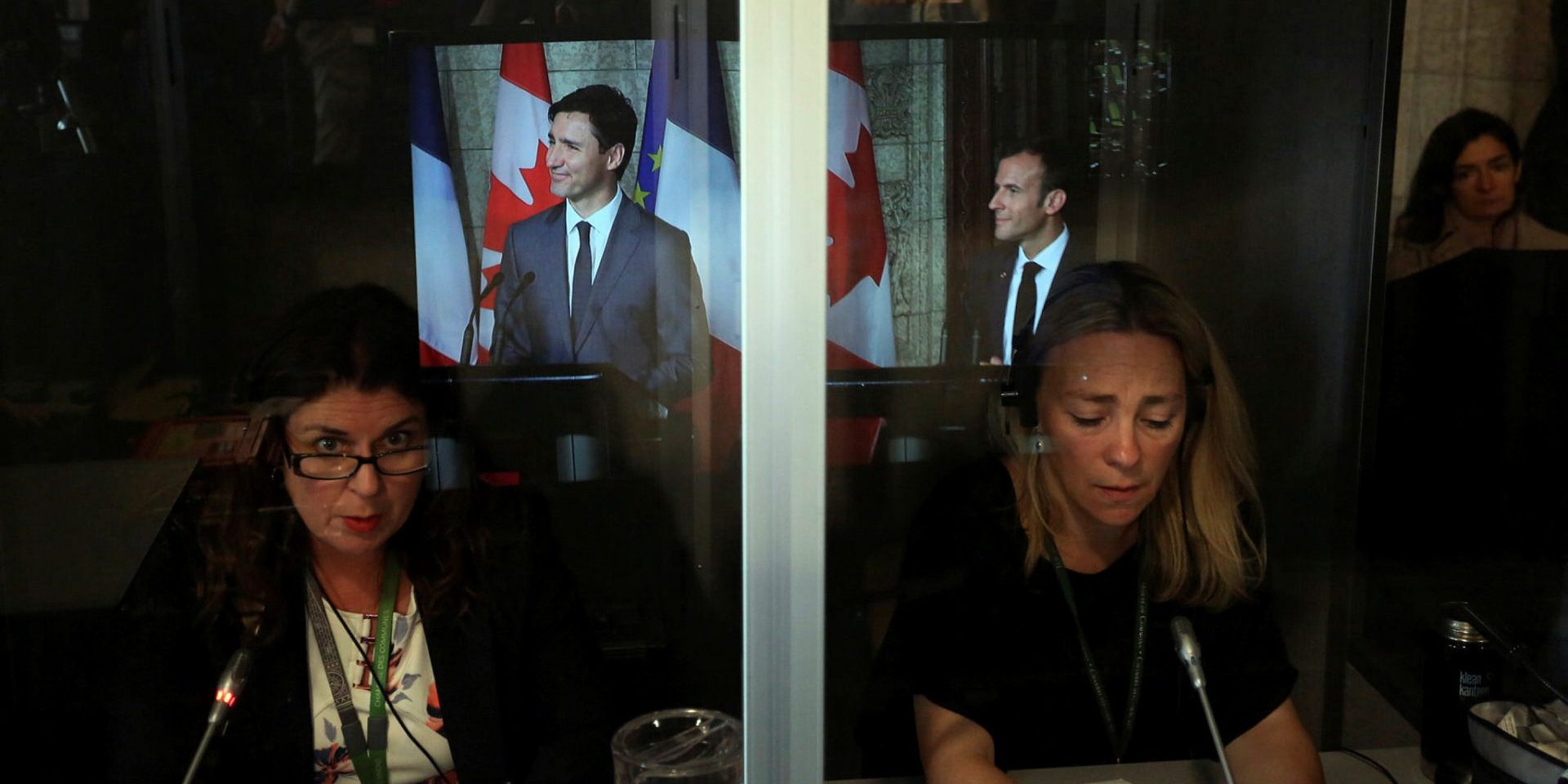Trump threatens Canada’s bilingual and cultural foundations

Though Donald Trump may deny it, the rapacious president of the United States wants Canada’s water. He covets our North and its strategic value. Just as he is squeezing Ukraine in its time of need, Trump wants Canada’s rare minerals. He wants our hydro, oil, and natural gas.
But it’s not only economic assets that are in his administration’s sights. The French language has now been declared an official trade irritant by the U.S. trade representative.
Make no mistake. Trump has designs on our nation’s the cultural and linguistic foundations.

But are Canada’s political leaders ready to defend our bilingual character, to say nothing about standing up for Indigenous languages and cultures? These are amongst the issues that have brought Canadians together at rallies and events across the country since Trump launched his first verbal and economic attacks towards us.
Trump’s attitude toward Canada is fuelled by many factors. Among them is sheer disdain for many of the things that make us Canadian, including bilingualism and reconciliation with Indigenous Peoples.
Countries with two official languages have been described as “failed states” by some Republican representatives. The Trump administration seems to regard bilingualism in Canada as the ultimate state-sponsored sop toward diversity, inclusion, and equity, if not a barrier to trade. Imagine what the Trump gang will do when they learn the CBC broadcasts in eight Indigenous languages in addition to French and English.
If Trump succeeds in bringing Canada to its knees through the economic terrorism of his illegal tariffs or through outright military might, it won’t be long before he imposes the policy of English-as-the-only-official-language he has already declared in the U.S.
For the most part, this country’s national, provincial and municipal leaders have stood up to U.S. economic threats to jobs in the auto, aviation, aluminum and other sectors. Counter tariffs and strong words from Team Canada have made our message about jobs and the economy clear.
Prime Minister Mark Carney promises French language and Canadian culture are off the table in talks with Trump. At the same time, Carney’s very first act as PM was to eliminate official languages as a distinct responsibility in his cabinet, instead asking Steven Guilbeault to attend to this assignment off the side of his ministerial culture desk, a move that would be noticed in the Oval Office.
Few among the opposition parties—save for the Bloc Québécois—have pointed this out as a critical error, especially at this moment in our history.
There’s more.
For months before the election was called, and behind the scenes in the House, MPs representing the two parties most likely to form the next government have routinely advocated that official language interpreters be forced back to work in dangerous conditions that make it impossible for them to deliver a quality service. The MPs seem to be saying, “give us the interpretation we need and to hell with the well-being of the interpreters.” Meeting the requirement of the Official Languages Act for Parliament to function in both official languages of equal quality has become nothing more than an aspiration.
One cannot help but wonder about the next government’s commitment to our linguistic duality, especially under pressure from Trump. Indeed, while Parliament is shuttered for the election, government officials are drafting new rules for official language interpreters who will work in the next Parliament that could well have this homegrown disdain built in.
Canada as we know it was founded by two distinct language and cultural groups on the backs of multiple Indigenous nations that were already here. Our multicultural reality has grown over the years, and is a nascent source of strength and unity especially under the threat we now face.
Finally, after more than 150 years of Confederation, the Translation Bureau of Canada is taking steps toward offering some limited Indigenous language interpretation. This is a welcome—if long overdue—step forward in the name of reconciliation. This modest effort will be washed away if Trump has his way.
One can only hope that when the party leaders face off during the upcoming election debates, they will defend our distinct bilingual and cultural character, as well as Canadian jobs. We Canadians are not willing to sell our soul for purely mercantile interests. Our leaders must speak up now and defend these foundations before it’s too late.
Alionka Skup is president of the International Association of Conference Interpreters-Canada Region whose members include the interpreters who translate the French and English speakers in Parliament.
The Hill Times





 LICENSING
LICENSING PODCAST
PODCAST ALERTS
ALERTS


